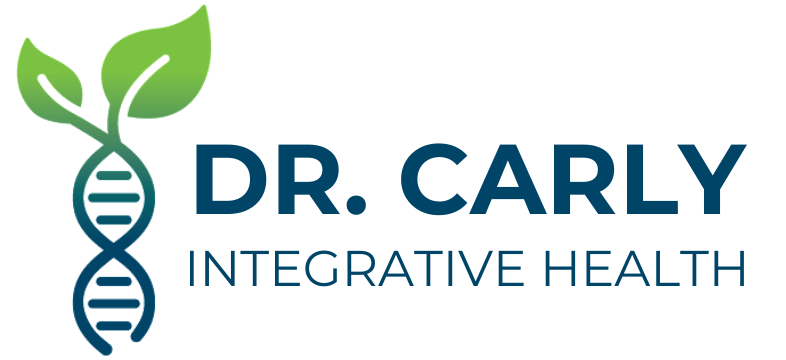What is Small Intestine Bacterial Overgrowth (SIBO)?
If you have been diagnosed with Irritable Bowel Syndrome (IBS), chances are that you actually have small intestine bacterial overgrowth (SIBO). Normally, you have small amounts of bacteria present in your small intestine. In SIBO, the bacteria proliferate in your small intestine where they ferment sugars from your food leading to digestive symptoms.
Symptoms of SIBO
abdominal pain & cramps
bloating
burping
gas
constipation
diarrhea
heartburn
What happens when bacteria are in the small intestine?
The purpose of the small intestine is digestion and absorption. Your food is mixed with pancreatic enzymes and bile to break down carbohydrates and proteins into smaller pieces and to emulsify fats. Enzymes lining the small intestine (called brush border enzymes) can break down carbs and proteins even further so that the enterocytes (the cells lining your small intestine) can take in the nutrients from your food and pass them to your blood.
When bacteria are present in the small intestine, they will start fermenting undigested carbohydrates. This leads to the production of gas (like hydrogen or methane) in the small intestine. This can result in visible abdominal distention (looks like you are pregnant).
The bacteria also produce other byproducts, like the endotoxin LPS. This is an inflammatory molecule that can damage the enterocytes. Damaged enterocytes means loss of brush border enzymes. This means your food isn’t broken down enough to absorb properly, leading to nutrient deficiencies, fatigue, and blood sugar imbalances. This also means that more food is available for your gut bacteria, which means more fermentation, which means more gas, bloating, changes in bowel movements and other digestive symptoms. Damaged enterocytes also means that you will have a harder time absorbing any food that is properly digested, again leading to the above issues. And if there is enough damage to the enterocytes, gaps can form between enterocytes. This is also known as leaky gut. So now you have undigested food and bacterial byproducts directly entering your blood. This leads to food reactions, immune activations, and whole body inflammation that can set you up for other health problems.
Other Health Conditions Caused by SIBO
The damage to the small intestine leads to nutrient deficiencies and immune activation that can cause other symptoms and health conditions:
Anemia
Food sensitivities
Headaches
Joint pain
Fatigue
Eczema
Asthma & allergies
Depression & mood disorders
Associated Conditions
SIBO is associated with many other diseases, either resulting from that disease or causing that disease:
up to 78% of people with IBS have SIBO
up to 67% of people with celiac disease have SIBO
up to 55% of people with connective tissue disease such as scleroderma have SIBO
up to 88% of people with Crohn's have SIBO
up to 44% of people with diabetes have SIBO
up to 54% of people with hypothyroidism have SIBO
up to 81% of people with chronic fatigue syndrome have SIBO
up to 20% of people with fibromyalgia have SIBO
Testing for SIBO
The current standard for testing is a 2 hour lactulose breath test. You drink a lactulose solution and take breath samples every 20 minutes for 2 hours. This test can be done at home. It measures the production of hydrogen and methane. If bacteria are overgrown in your small intestine, they will ferment the lactulose to produce hydrogen or methane. An elevation of hydrogen greater than 20 ppm within 90 minutes or an elevation of methane greater than 3 ppm within 120 minutes or both is positive for SIBO. Which gas is elevated depends on the specific bacteria in your small intestine.
Treating SIBO
SIBO is a very complicated condition to treat and all treatment must be done under a qualified doctor. Do not attempt to treat SIBO on your own. Treating SIBO also takes a very long time as there are several phases of treatment:
Eradication of bacteria (antibiotics or herbal antimicrobials)
Restoration of motility (pharmaceuticals or natural agents)
Restoration of digestive deficiencies (gastric acid, digestive enzymes, bile, GI immunity)
Healing gut lining (herbs and nutrients)
Repopulating healthy bacteria
Preventing recurrence (lifestyle, diet, and natural therapeutics)
Treatment may last 6-12 months. Step 1 can often take several rounds of therapeutics, which may take months. Each additional step may take anywhere from 1-3 months. It is also important to note that all SIBO treatments should be individualized. You may have additional conditions, such as leaky gut or an autoimmune disease, that also require treatment. You may also have parasites, yeast overgrowth, or a large intestine bacterial imbalance that need to be treated as well. So it is important to find a doctor who can work with you holistically to fully address your symptoms.
References
Ginnebaugh B, Chey WD, Saad R. Small Intestinal Bacterial Overgrowth: How to Diagnose and Treat (and Then Treat Again). Gastroenterol Clin North Am. 2020;49(3):571-587. doi:10.1016/j.gtc.2020.04.010
Rao SSC, Bhagatwala J. Small Intestinal Bacterial Overgrowth: Clinical Features and Therapeutic Management. Clin Transl Gastroenterol. 2019;10(10):e00078. doi:10.14309/ctg.0000000000000078
Bushyhead D, Quigley EM. Small Intestinal Bacterial Overgrowth. Gastroenterol Clin North Am. 2021;50(2):463-474. doi:10.1016/j.gtc.2021.02.008
Chuah KH, Wong MS, Tan PO, et al. Small Intestinal Bacterial Overgrowth In Various Functional Gastrointestinal Disorders: A Case-Control Study. Dig Dis Sci. Published online August 21, 2021. doi:10.1007/s10620-021-07227-4
Rizos E, Pyleris E, Pimentel M, Triantafyllou K, Giamarellos-Bourboulis EJ. Small Intestine Bacterial Overgrowth Can Form an Indigenous Proinflammatory Environment in the Duodenum: A Prospective Study. Microorganisms. 2022;10(5):960. doi:10.3390/microorganisms10050960


